“We are testing our roses in hot places, as we want to provide roses for the future, not just for tomorrow,” says Matthias Meilland of Meilland Roses. In addition, sustainability is an important aspect for the company. “We breed garden roses that are the perfect sustainable gift, we are launching pollinator Friendly® roses, and our varieties can be used without any pesticides and fungicides.” In this article, Meilland shares the effects of global warming for rose breeding, whether it is possible to hold on to the new ‘pandemic gardeners’, and how ever-changing trends make rose breeders’ lives challenging.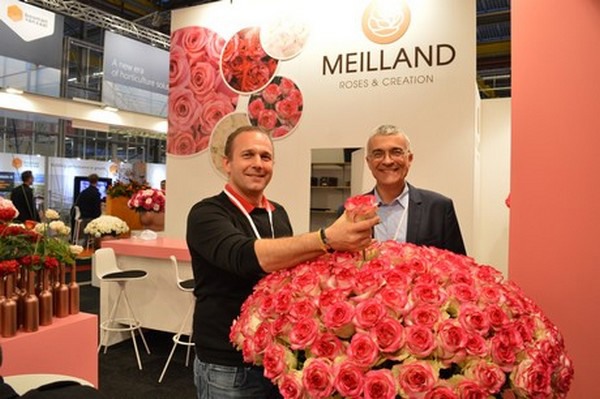
Matthias Meilland and Bruno Etavard of Meilland at IFTF 2017
Climate change and rose breeding
According to Meilland, climate change is something that the company is already taking into account when it comes to rose breeding. “As the Earth will become hotter and climatic events stronger, we need to have roses that are still able to perform well in the garden and the landscape. Therefore, we are testing rose varieties in hot and dry places, as well as hot and humid places. For example, we are testing varieties in Florida and in Shenzhen in China, to see how they perform in the hot and humid environment. This is necessary when you want to provide roses for the future, not just for tomorrow.”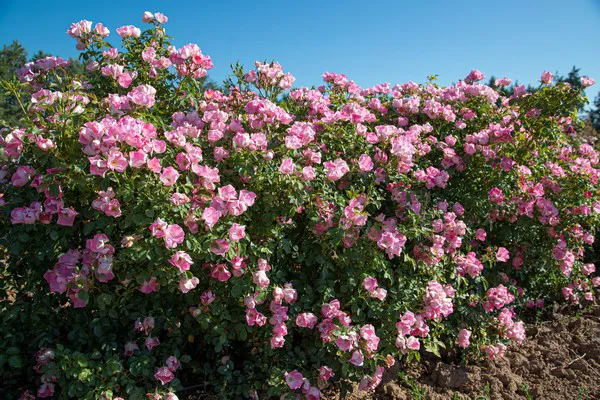
Friendly Pink Meissalu
“Japanese roses in the morning, American roses in the afternoon”
Meilland explains that selection is an important aspect for their roses. However, with the recent lack of travelling, they had to find new ways to select the best varieties. “While it is a great time to bring out new varieties as the demand is so high, the travel restrictions are making the selection process more challenging. Normally, we would visit the greenhouses and farms to see the roses for ourselves, but we have been doing everything through social networks, such as Zoom meetings. It has definitely made the process interesting, as we are now able to see Japanese roses in the morning, and American roses in the afternoon.”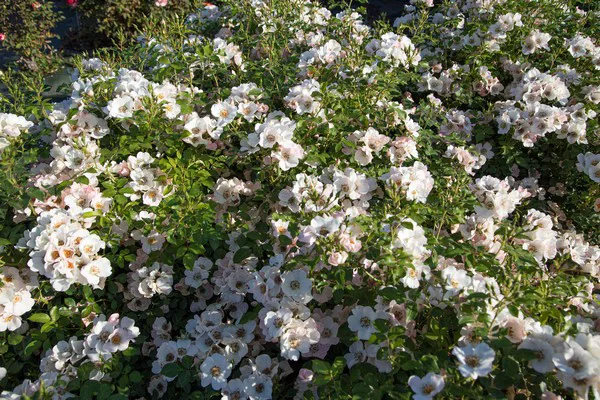
Friendly Sweet Meinatope
Disappearing clients
While the current demand for flowers is high, Meilland mentions that he does not expect this to last in the future. “A part of the new clients that we gained are new gardeners that will stay clients, as they will continue their new hobby. Yet it is realistic to assume that another part will disappear as other forms of entertainment are coming back as well, such as going to restaurants or seeing a movie at the cinema. But we think that the pandemic has created a new, younger generation that is interested in flowers, and we are hoping that they will remain interested.”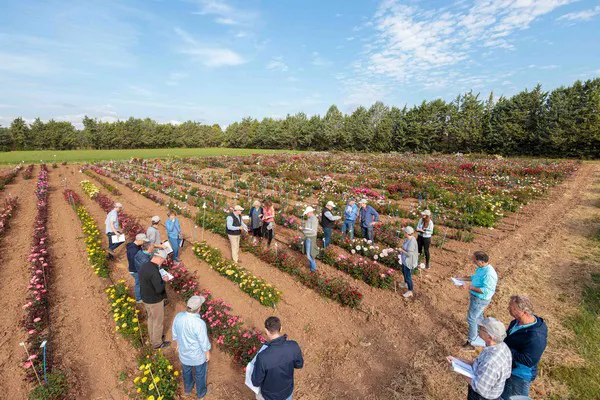
Zero spray trial in France
Changing trends
Meilland explains that it is difficult for rose breeders to choose which varieties to breed, as the rose trends are ever-changing. “At the moment orange is a popular color, as people want that wow-factor to their garden. Yet it is difficult to respond to trends as a breeder as they are constantly changing, and it can take years to create a variety. That is why it is important to have different colors as well as fragrances, so that you can offer a bit of everything and think ahead of the future market.”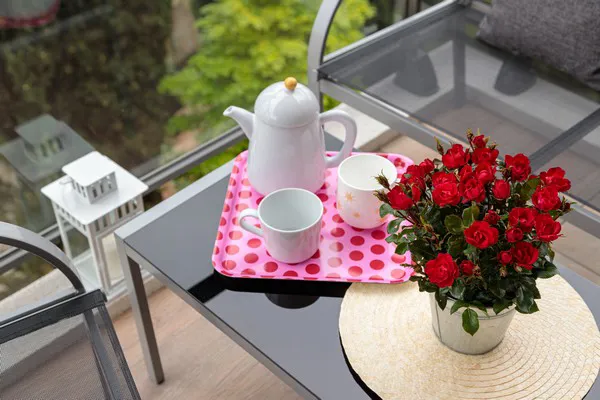
Zepeti Terrasse
No pesticides and bee-friendly
“It is important for our roses to remain disease-resistant while not using any pesticides and fungicides. We have been working on improving resistance since the late 70s, and have since been working without any pesticides and fungicides. It has been a long road with lots of hard work, but we now have good looking varieties with a high level of disease resistance.” Meilland is also launching a new rose that is bee-friendly. “The Friendly roses have single flowers, meaning that it is much easier for bees to pick up the pollen. Therefore, it is important for parks and gardens to use these types of plants, as they are sustainable, low maintenance, and good for spreading pollen. Normally it is difficult for bees to find pollen in the autumn, but these roses bloom from spring to frost.”
Roses as sustainable gifts
Around two years ago, Meilland launched their Zepeti® rose, which is a small and compact variety, that works well with the recent trend of sustainability, according to Meilland. “This variety launched about two years ago and we are already approaching two million roses sold worldwide. We are noticing that it is popular to give a sustainable gift, and this rose fits in perfectly. You are not giving a bouquet of roses that you throw away after two weeks, but you are giving beautiful, small garden patio roses that last several years.”
For more information:
Meilland roses
Matthias Meilland
meilland.matthias@meilland.com
www.meilland.com
